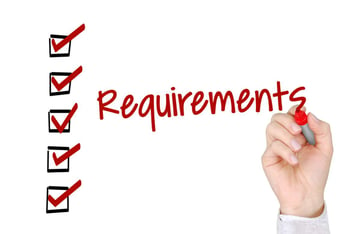Expert-Inspired Best Practices for Managing Virtual Teams
Building a virtual team is one of the best ways to scale your property management business and add skilled team members to your workforce. The benefits of choosing virtual assistants are abundant, and more property management companies are turning to virtual solutions to scale their businesses.
However, the crux of success lies in adept virtual team management. In this guide, we'll deliver some of our expert-inspired best practices for managing virtual teams, especially suited for property managers, and how you can effectively build a team that enhances operational efficiency while minimizing costs.
Challenges of Working With Virtual Assistants
While we can tell you that the benefits of adding a property management virtual assistant to your team far outweigh the disadvantages, there are some challenges to overcome to manage remote teams effectively. Here are a few!
Lack of Clear Expectations and Boundaries
When it comes to remote team management, the issue of unclear expectations and boundaries is a common one. Without a physical office as a central point of operation, managers and team members may struggle with ambiguities.
For instance, there may be confusion around who is responsible for what tasks or how urgent certain projects are. Additionally, in the absence of traditional working hours, team members may end up working sporadically, disrupting workflow and leading to inefficiencies.
These factors make it essential to lay down clear expectations and boundaries, such as specific job roles, measurable outcomes, deadlines, and well-defined working hours.
Isolation and Disconnection
Another challenge that looms large in a remote work setting is the feeling of isolation and disconnection that can gradually build up among team members.
While remote work offers the flexibility of location, it also inadvertently deprives staff of the casual social interactions that naturally occur in a physical office setting. This can lead to feelings of isolation, which, if not addressed, can have a detrimental effect on an employee's mental health and job satisfaction.
This, in turn, can affect productivity and overall well-being, making it imperative for managers to develop strategies to keep remote team members connected.
Communication Hurdles
Communication challenges often become one of the most evident pain points in remote team management. Unlike a traditional office, where a quick chat across the desk can solve many issues, remote work relies on virtual communication tools, which can sometimes be limiting.
The absence of non-verbal cues and the delays in response times can contribute to misunderstandings. Moreover, important messages may get buried in long email threads or missed entirely in group chats.
A lack of robust channels and clearly defined protocols for different types of communication — be it project updates, casual interactions, or urgent issues — can create bottlenecks that ultimately hamper productivity.
Team Member Burnout
The blurred lines between work and home life are another factor to contend with in a remote work setup.
Unlike a traditional workplace, remote work doesn't distinguish between "work mode" and "home mode." This makes it easy for team members to extend their work hours without even realizing it.
Over time, the absence of clear work-life boundaries can result in employee burnout, resulting in decreased productivity, low morale, and increased errors. Managers need to be vigilant about this and actively encourage a balanced work-life culture.
Lack of Trust
Lastly, trust is the cornerstone of any successful team, but it's especially crucial in a remote setting.
Without the "physical oversight" that many are accustomed to in an office environment, managers may struggle with trust issues. This lack of trust can lead to unnecessary micromanagement, which is inefficient and detrimental to team morale.
Building trust takes time and consistent effort. Managers should create trust by establishing transparent systems for monitoring progress and encouraging open communication rather than resorting to constant surveillance or stringent controls.
 Overcoming Challenges in Remote Team Management
Overcoming Challenges in Remote Team Management
The good news about these challenges is that there are good solutions! For better remote team management, property managers should apply the following best practices.
Document Responsibilities
One of the foundational steps in effective virtual team management is the clear documentation of roles and responsibilities.
Don't assume that team members intuitively understand their tasks or the hierarchy of work. A clear, written outline specifying who is responsible for what, along with measurable goals for each role, helps set a transparent roadmap.
Once you've created these documents, share them with every team member. This straightforward approach eliminates guesswork and lays the foundation for accountability and enhanced productivity.
Set Clear Rules and Expectations
To further foster a well-organized remote work environment, managers should create detailed manuals that outline company policies, general rules, and specific expectations from each role. Better yet, have your VAs create a manual for their roles as they onboard and train with your property management company during the first few weeks.
This is not just an HR exercise but a functional document that serves as a go-to guide for team members. Questions about work hours, breaks, and acceptable behavior, among others, should be clearly addressed.
Make sure all team members acknowledge receipt and understanding of the information going into the manual to ensure everyone is on the same page.
Create a Structure to Integrate Remote Team Members
A structural integration process can be invaluable when onboarding new property management virtual assistants.
This involves more than just providing them with login credentials and sending them a welcome email. Assign mentors or 'work buddies' from your existing team to guide new members through the organizational culture, workflow, and procedures. This mentorship approach helps newcomers acclimate more quickly, fosters a sense of belonging, and allows for a smoother, more effective integration process.
Encourage Feedback
Promoting an open feedback culture can be a game-changer in remote team management. A culture where feedback — both positive and constructive — is freely shared encourages continual growth and problem-solving.
Managers should set up regular avenues for feedback, such as end-of-week debriefs or one-on-one meetings, where team members can discuss their challenges, ideas, or concerns without fear of reprimand.
Supply Communication Tools and Protocols
The importance of efficient communication in remote teams cannot be overstated. Provide your team with the most effective communication tools suitable for various purposes — real-time collaboration, video conferencing, project management, etc.
Equally important is to establish protocols for these tools. Whether it's daily stand-ups or weekly round-ups, make sure everyone knows what kind of communication is expected and when.
Check-In Routinely
For managers, maintaining regular contact with remote assistants is vital for nurturing rapport and trust.
These check-ins shouldn't only focus on work progress but should also address the general well-being of team members. Scheduled one-on-one meetings where managers ask about the team member's well-being, offer help with any challenges, and discuss long-term goals can be immensely beneficial.
Provide Opportunities for Full Team Collaboration and Engagement
To make remote team members feel like a significant part of the organizational fabric, arrange opportunities for full-team activities with your in-house employees.
Virtual team-building events, skill-sharing workshops, or even casual hangout sessions can be organized to foster a sense of community and collaboration. These engagements help break down the isolation barrier and create a more cohesive team.
Recognize Excellence
Recognition is a powerful motivator. Make it a regular practice to recognize and reward outstanding contributions from remote team members.
Whether it's a shoutout during a team meeting or a tangible reward like a bonus, showing appreciation will uplift the team morale and inspire them to maintain high performance.
Choose the Best Virtual Assistants
This should probably be the first thing on this list of ways to overcome challenges when managing remote workers!
The backbone of a successful remote team is, undoubtedly, its members. When selecting virtual assistants for property management, it's essential to be painstakingly meticulous.
Start with a platform specializing in the talent you need for crucial roles. VPM Solutions is the only workforce outsourcing platform that provides virtual assistance to the property management industry and real estate professionals.
Then, look for candidates who not only have the necessary skills but also align with your company's culture and values. These individuals will most likely fit seamlessly into your operational structure and contribute meaningfully to team success.
 Experience Better Remote Team Management with VPM Solutions
Experience Better Remote Team Management with VPM Solutions
By implementing these best practices for managing virtual teams, property managers can construct and maintain a remote team that not only meets but surpasses expectations in reducing operational costs and improving efficiency.
To get a jumpstart on building an effective remote team, create a Free Company Profile with VPM Solutions. We are the industry leaders in providing skilled virtual assistants for roles like marketing, maintenance coordination, leasing, transactions, and bookkeeping, tailored to the property management and real estate sectors.
You can also get more of our expert insights into managing virtual teams when you request a free copy of "The Ultimate Guide to Managing Property Management Virtual Assistants."





















